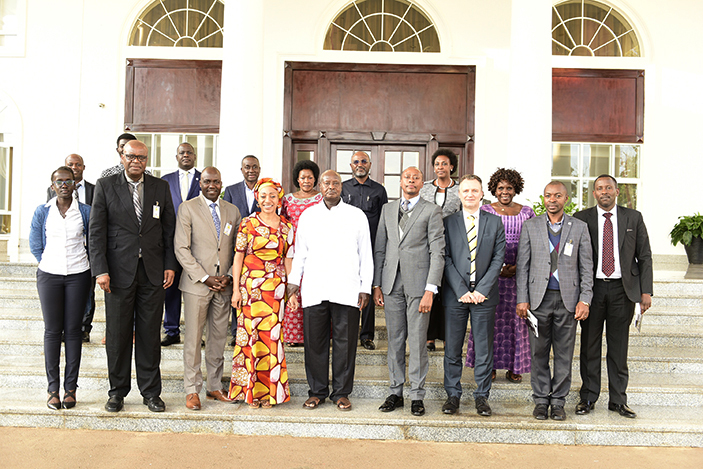Investing in homegrown think-tanks and what it means for Africa
Aug 06, 2018
Investment in shaping mindsets of the young generations is critical.

By Betty Bigombe
On July 31st, a significant event took place in Uganda, at the Sheraton Kampala Hotel, with over 300 high level guests - with some coming in from different parts of Africa.
The dialogue hosted by Africa Strategic Leadership Centre, explored the role of think Tanks in shaping Africa's growth and development.
Inspired by author Dr. James Magara's compelling argument that, "countries without homegrown think-tanks are like bodies without brains" the dialogue centered on how best to position and strengthen capacity in informing policy solutions geared towards effective service delivery.
The inaugural dialogue gathered great minds to share insights and perspectives on identifying practical solutions to secure a better future for Africa, and set a stage for more convenings focused on fostering inter-sectoral debate to define the role and value of conversation in Africa's development agenda, with the end goal of influencing policy to enhance public service delivery, and private sector development in Africa.
The common thread in what ensued in deliberations was a consensus that, think-tanks must take centre stage in guiding and propagating ideas focused on securing Africa's place within the new global order.
As our fore father Nelson Mandela said, "I dream of the realization of the unity of Africa, where its leaders combine in their efforts to solve the problems of this continent". This is a direct challenge for organizations such as the Africa Strategic Leadership Centre, to mobilize effective engagement which transforms, reflects and inspires the dream of a better Africa.
For a very long time, how the world saw Africa, or even how Africans saw themselves, depended very much on an outsiders points of view. As a result, we have commonly heard leaders and others call for Africa, and Africans to take charge of shaping the narrative of how the rest of the world sees us, however with not much follow action on how to achieve this. This is a critical role where think-tanks can reshape what has been a common narrative of Africa as a place of deficits and gaps, to a more realistic image of opportunities, projections, creativity and innovation.
Investment in shaping mindsets of the young generations is critical in this effort. A combination of a very young continent, with smart phones, and access to data, make the youth critical players in ensuring the African story can be first and foremost be told by them. However, African society must first deliberately invest in these youth. They must be equipped with the skills, knowledge, and attitudes that prepare them to take on leadership challenges of now and tomorrow.

President Yoweri Museveni with Samia C.Yaba Nkrumah (fourth left),Prof Eddy Maloka APRM CEO (second left), Wim Vanhelleputte MTN CEO ( third right), Dr Robert Mwesigwa ( fourth right) and other ASLC members on Wednesday. (Courtesy photo)
Within East Africa and the general context of Africa, think-tanks can act as a bridge between the academic, private sector, and policymaking communities and between states and civil society, where they serve public interest as an independent voice that translates applied and basic research into a language that is understandable, reliable, and accessible for policy makers and the public.
There must be mechanisms, that provide timely and concise information and analysis, that is "in the right form, in the right hands, at the right time", and African think tanks have a large pool of much-needed expertise to tap into in order to provide both quality and a deep African perspective.
Notably, most literature that informs the knowledge community in the world on Africa has not commonly been written by Africans. This must change if Africa has to lead within the time period of what is left of the 21st century. African governments and individual policy makers, face the common problem of bringing expert knowledge to bear in government decision-making. Policy makers in this regard, could use the extra support with the provision of need understandable, reliable, accessible, and useful information about the societies they govern.
As a think-tank community, we must aggressively work towards ensuring that our think tanks have the resources and tools to thrive, prosper, and grow. Challenges of adequately finding the resources to fund and support African think- tanks will have global policy ramifications.
A collective effort at the highest levels of government and private sector is required to invest and strengthen think-tanks in the region which will enable them to provide strategic contribution in addressing some of the challenges society is faced with today.
The writer is Board Member of the Africa Strategic Leadership Centre
